The Neurophysiological Benefits of Live Music for Early Alzheimer’s Patients and Their Caregivers
AZA Stephen Allsop, Primary Researcher
Anxiety significantly worsens neuropsychiatric outcomes and quality of life, making it a key target for treatment of people with Alzheimer’s disease and dementia. Research has shown that music, particularly live music preferred by the individual listener, enhances memory and reduces symptoms of anxiety, and that group-based music interventions are most effective. Previous studies show low parasympathetic activity in dementia, revealing a potential risk factor for disease progression and suggesting that music therapy could increase parasympathetic activity. However, the underlying neural mechanisms are unclear and the effect of music is varied and ill-defined.
This project will explore the impact of live music on parasympathetic activity among people with Alzheimer’s disease—including heart rate variability, brain activity, and anxiety—during group listening with caregivers and will analyze neurophysiological synchrony between them. The hypothesis is that live music will have greater impact on decreasing anxiety and enhancing parasympathetic activity compared to pre-recorded music and will also enhance neurophysiological synchrony between people with Alzheimer’s disease and their caregivers.
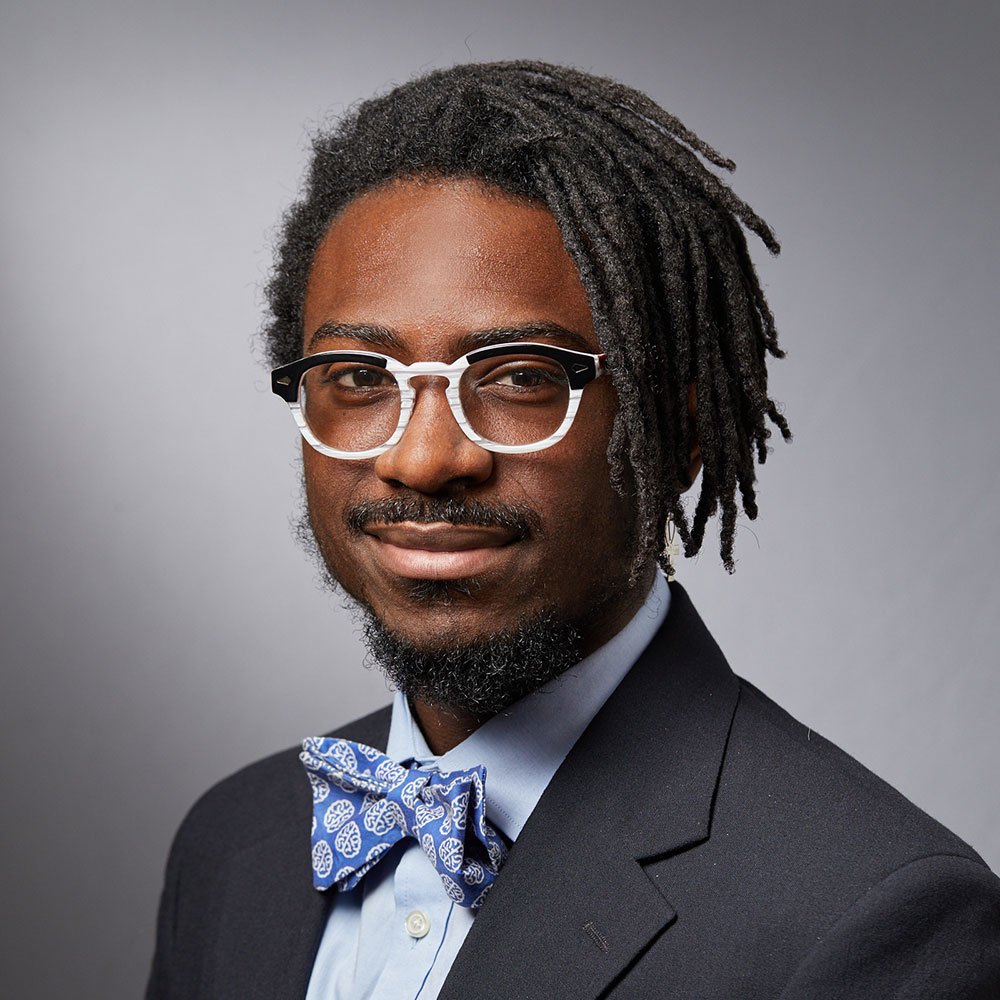
AZA Stephen Allsop
AZA Stephen Allsop, MD, PhD, an assistant professor in Yale’s Department of Psychiatry and Director of the Center for Collective Healing at Howard University, is an artist, neuroscientist, and psychiatrist who conducts mental health research at the intersection of social cognition, music mindfulness, and psychedelics.
His research and clinical work are guided by the belief that decoding these tools will provide insights into how social groups function and how to treat mental suffering, enhancing the evolution of society at large. He teaches meditation, yoga, and music and co-founded Mefreely, and Brain, Bias, and Being, companies that combine arts, science, and community-building to drive sociocultural change.
As an undergraduate, Allsop studied biology, philosophy, and jazz. He received his medical degree from Harvard Medical School and a PhD in neuroscience from MIT and was an Emerson Scholar at Berklee College of Music. He completed his clinical residency in the Department of Psychiatry at Yale University where he served as co-chief resident of the Clinical Neuroscience Research Unit and the Neuroscience Research Training Program.
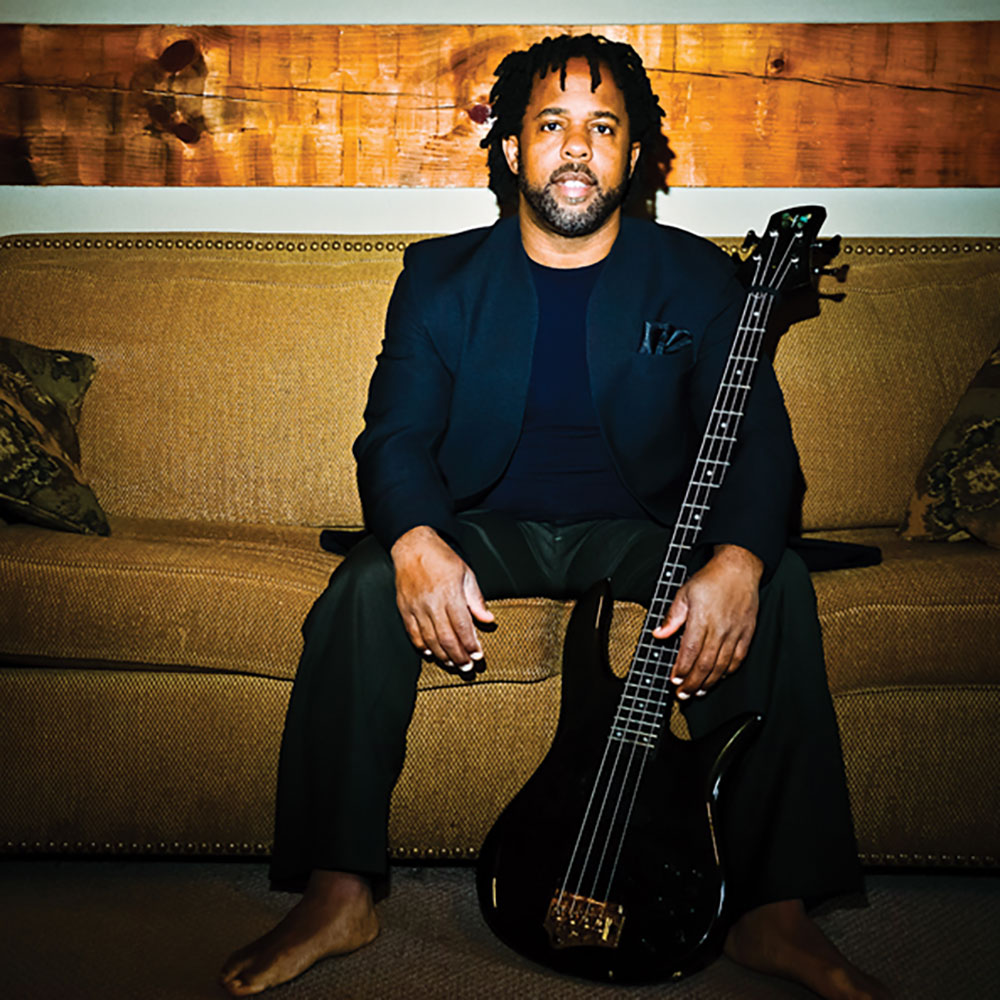
Victor Wooten
Victor Wooten, a five-time Grammy winner is a performer, recording artist, and dedicated educator.
A founding member of the super group Béla Fleck and the Flecktones, his collaboration with banjo genius Béla Fleck continues to this day. Wooten has performed with many other artists and has numerous albums to his credit, including as a soloist and a collaborator with Bass Extremes and the Flecktones. He also produces his his own label, Vix Records. Wooten earned three consecutive awards as top bassist from Bass Player magazine, is included in the “Top 10 Bassists of All Time” list by Rolling Stone magazine, and has written a novel, The Music Lesson: A Spiritual Search for Growth Through Music. He founded the Victor Wooten/Berklee Summer Bass Workshop and the Center for Music and Nature, which have been helping to nurture the next generation of bass players and other musicians for 25 years.
DJing and Hip Hop Music Production as a Clinical Intervention for Individuals with ADHD
Dr. Julia C. Basso, Primary Researcher
Attention deficit hyperactivity disorder (ADHD) is a clinically heterogeneous neurodevelopmental disorder that is marked by psychological, cognitive, and somatic traits. Current pharmacological treatments are fully effective in only about 70 percent of the population and they have major side effects and are in short supply.
Music, which involves sensory, motor, and higher-order cognitive processes, has been shown to improve mood and executive functions impaired in ADHD. In particular, hip hop music may be an excellent non-pharmacologic intervention because it relies on the principles of flow, layering, and rupture. The goal of this project is to evaluate a DJing and hip hop music production experience on ADHD symptoms in adults by using behavioral surveys as well as techniques to record body and brain physiology. This approach will help to identify the mechanisms underlying the psychological outcomes of the hip hop intervention and to evaluate the hypothesis that this intervention decreases symptoms and enhances somatic and neural markers associated with ADHD.

Julia C. Basso
Julia C. Basso, PhD, is an assistant professor in the Virginia Tech Department of Human Nutrition, Foods and Exercise; affiliate professor in the School of Neuroscience and in the Center for Autism Research; and a fellow at the Center for Health Behaviors Research.
She directs the Embodied Brain Laboratory and co-directs the Science and Art of Movement Laboratory, located in the Moss Arts Center at Virginia Tech. The primary aims of her laboratory are to investigate the effects of mind-body-movement and other creative practices, such as dance and music, on brain function and physiology.
Artistically, Basso constructs dance works and other artistic installations that focus on visualization and sonification of the human brain during creative engagement. She received her BA in dance and a PhD in behavioral and neural science from Rutgers University and is a certified yoga teacher. Her work has been featured in Dance Magazine, Psychology Today, and Virginia Living, as well as on National Public Radio and various other podcasts and news outlets.
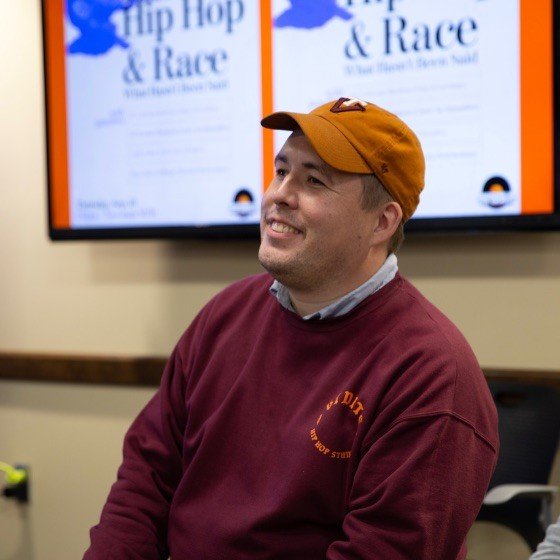
Craig Arthur
Craig Arthur, MLIS, is associate professor of practice at Virginia Tech, director and cofounder of Virginia Tech Digging in the Crates (VTDITC): Hip Hop Studies, and manager of True School Studios, a DJ workshop.
A member of the Table Rok Crew DJs, Arthur has been a disc jockey for decades, sharing the stage with numerous artists including Kanye West, Common, Little Brother, Clan Destined, Travis Porter, Ozay Moore, Tall Black Guy, Stimulator Jones, Kozmik Force, and Lil Yachty.
In an earlier capacity, Arthur served as community engagement coordinator and founded and led the University Libraries’ Community-Engaged Research and Programs Working Group, designing, building, and programming numerous experiential learning labs. He has received multiple awards for excellence in equity and community-engaged scholarship, produced numerous digital scholarship projects and publications, and earned his Master of Library & Information Studies at the University of North Carolina at Greensboro.
Integrating Drawing and Mindfulness to Reduce Anxiety: A Longitudinal Neurophysiological Study
Sarah Myruski, Primary Researcher
Anxiety symptoms cause significant distress for millions of adults, yet many who experience symptoms do not seek treatment. Mindfulness meditation can improve psychological wellbeing and reduce anxiety, but its practical benefits may be diminished given the difficulty of initiating meditation sessions and building a sustainable habit. Drawing-based interventions have also been shown to provide psychological benefits. Using drawing as a delivery tool infused with mindfulness elements offers the possibility of creating an effective avenue to reduce anxiety.
This study uses mobile electroencephalography (EEG) to measure neurophysiological emotion regulation (i.e., delta-beta coupling) as a target outcome to be enhanced by a novel guided drawing activity with mindfulness elements. In a sample of 50 adults, we will examine whether the guided drawing activity significantly alters anxiety and neurophysiological emotion regulation, and whether these changes are sustained or potentiated over one month of habitual drawing sessions. The research will increase understanding of how drawing can be leveraged to manage anxiety symptoms and bolster neurophysiological emotion regulation.
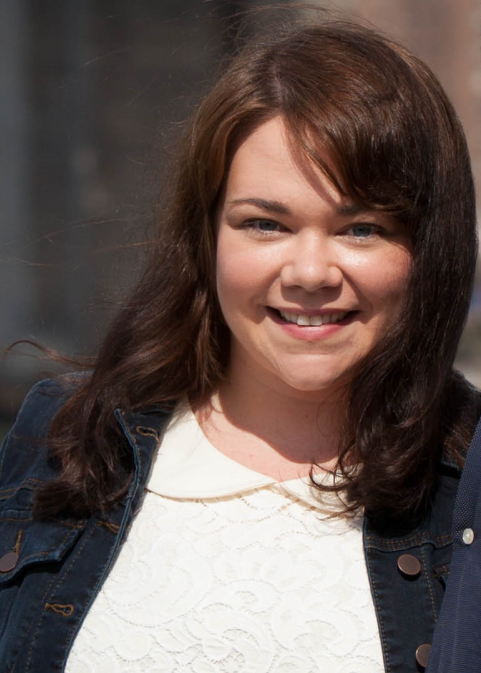
Sarah Myruski
Sarah Myruski, PhD, is an assistant research professor of psychology and associate lab director of the Emotion Development Lab at Pennsylvania State University.
Her research examines emotion regulation—the implicit and explicit processes by which we modulate emotional experiences and expressions—as a mechanism underlying anxiety symptoms. Her work leverages neurophysiology to illuminate elements of affect and cognition that shape anxiety trajectories, and to develop interventions designed to bolster emotion regulation and reduce anxiety. Over the past three years, Myruski has collaborated with William J. Doan at Penn State’s School of Theatre to design a guided drawing intervention incorporating mindfulness to reduce anxiety symptoms.
Myruski earned her PhD in psychology, with a behavioral and cognitive neuroscience concentration, from the Graduate Center of the City University of New York.

William J. Doan
William J. Doan, PhD, MFA, is a professor of theatre in the College of Arts and Architecture and director of the Arts and Design Research Incubator at Pennsylvania State University.
In addition to articles in scholarly journals, Doan has co-authored three books and several plays. The solo performance projects he has created at a variety of venues across the US and abroad include “Drifting,” about traumatic brain injury, sibling loss, and memory. Among his current work is a new performance piece, “Frozen in The Toilet Paper Aisle of Life,” part of a larger project titled “The Anxiety Project.” Work from this project includes multiple short graphic narratives and several award-winning animated short films.
Doan was artist-in-residence for the College of Nursing, Penn State laureate, past president of the Association for Theatre in Higher Education, and a fellow in the College of Fellows of the American Theatre. He earned his MFA from Virginia Commonwealth University and his PhD from Case Western Reserve University.
Psychological Responses to Architecture: Bridging Real to Virtual Spaces and Subjective to Objective Measures
Dr. Jeffrey Vadala, Primary Researcher
This project will examine people’s responses to spaces designed on biophilic principles and determine if such design improves attentional capacities, mitigates stress, and enhances creativity. A multidisciplinary team will establish the viability of mapping real spaces to virtual reality environments and translate first-person qualitative experiences into third-person quantitative parameters using Large Language Models (LLMs). The research methods include an experimental comparison between a biophilic-designed space and a control space, using automated tests and subjective interviews to measure effects on aesthetic experiences, cognition, and creativity. The environments will be replicated in virtual reality using advanced scanning technology and Unreal Engine graphics. A customized LLM system such as ChatGPT will convert subjective experiences into structured quantitative data for analysis.
This research will offer an innovative lens for investigating architectural design, guide future designs to be more responsive to human well-being, and potentially become a benchmark in neuroaesthetics research. It has the potential to influence future architectural design and assess its salutary effects, and to close the gap between subjective and objective accounts of human experience.
This study uses mobile electroencephalography (EEG) to measure neurophysiological emotion regulation (i.e., delta-beta coupling) as a target outcome to be enhanced by a novel guided drawing activity with mindfulness elements. In a sample of 50 adults, we will examine whether the guided drawing activity significantly alters anxiety and neurophysiological emotion regulation, and whether these changes are sustained or potentiated over one month of habitual drawing sessions. The research will increase understanding of how drawing can be leveraged to manage anxiety symptoms and bolster neurophysiological emotion regulation.
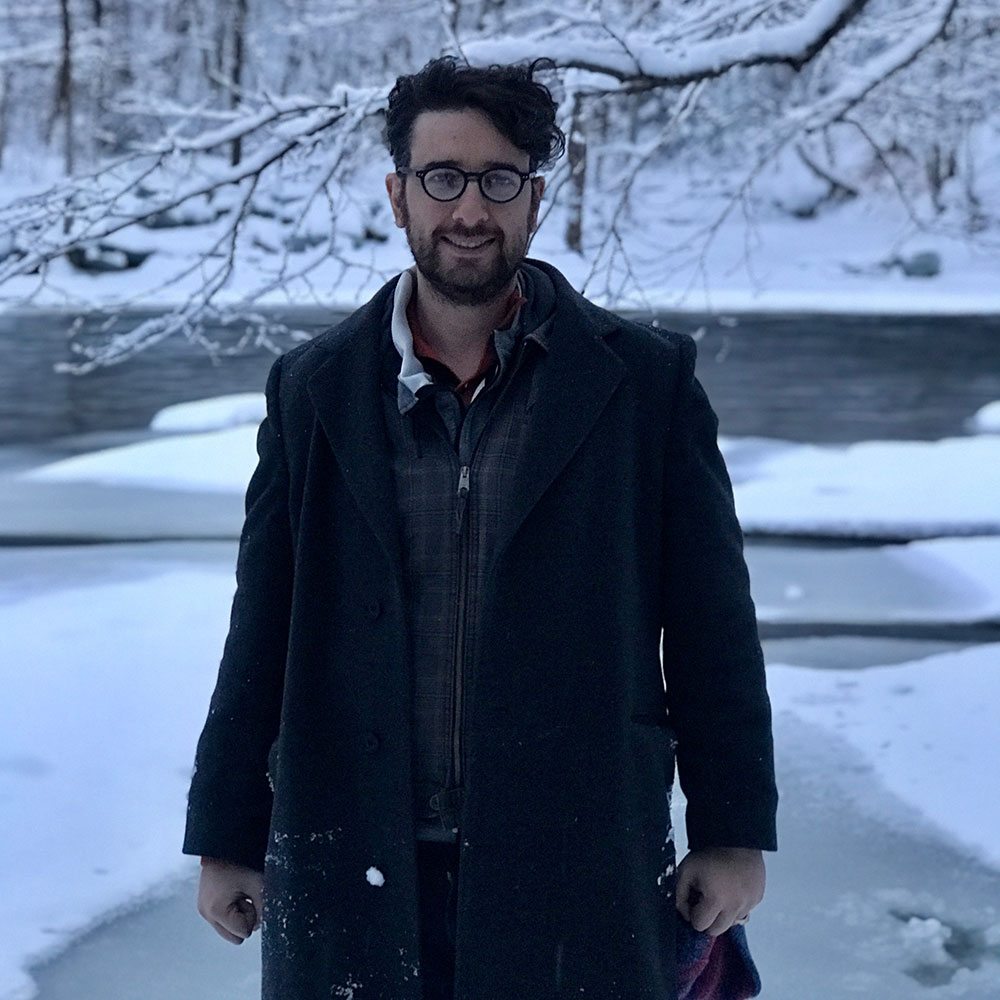
Dr. Jeffrey Vadala
Jeffrey Vadala, PhD, is director of the Neurology Virtual Reality Laboratory at the University of Pennsylvania Brain Science Center and a researcher at the Penn Center for Neuroaesthetics.
As a researcher and software developer focused on the intersection of neuroscience, anthropology, artificial intelligence, and virtual reality, his work aims to understand how human perception of landscapes and architectural spaces shapes cognitive and cultural processes in contemporary and archaeological contexts.
At the Virtual Reality Lab, Vadala collaborates with researchers from various disciplines to develop and implement virtual and augmented reality approaches and experimental methods. At the Penn Center, he explores how people aesthetically, psychologically, and neurologically respond to architectural spaces using virtual reality, augmented reality, and artificial intelligence. This research contributes to the growing field of neuroaesthetics and provides insights into the complex relationship between the built environment and human experience.
His interdisciplinary background includes a PhD in anthropological archaeology from the University of Florida.
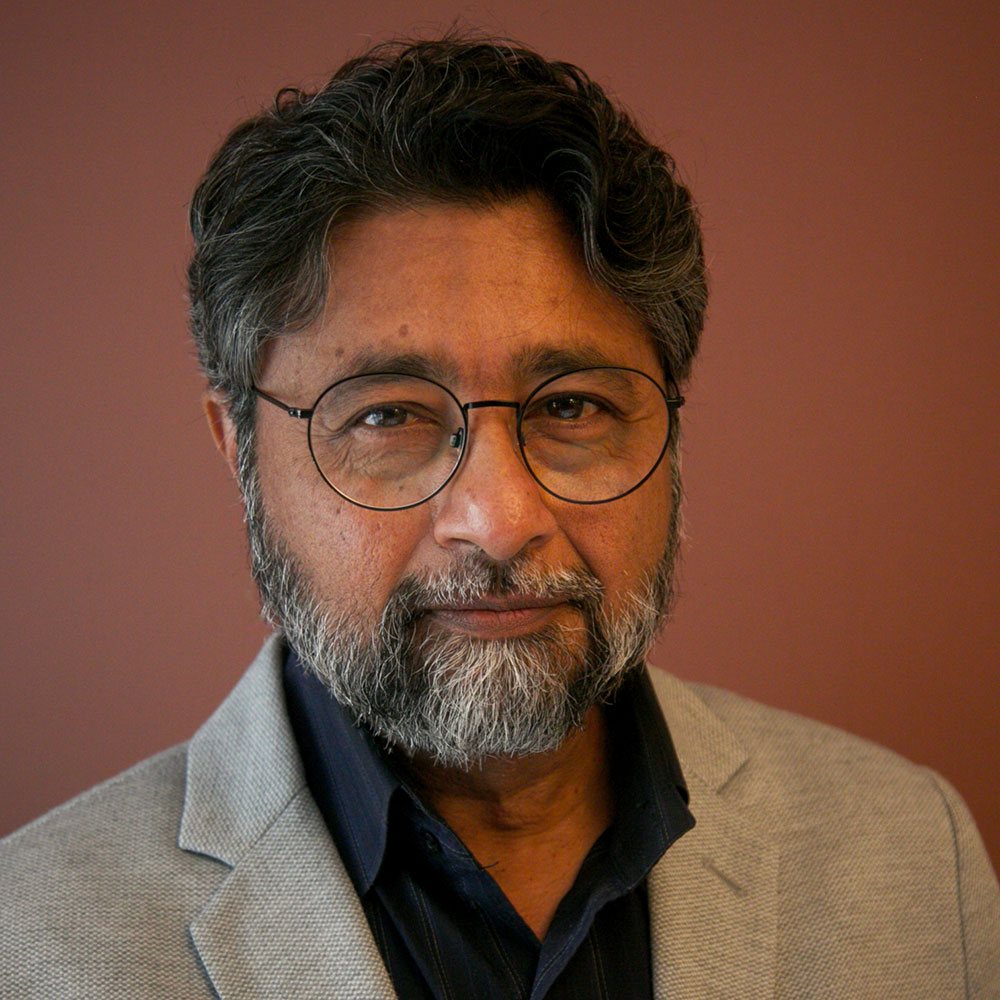
Anjan Chatterjee, MD, FAAN
Anjan Chatterjee, MD, FAAN is professor of neurology, psychology, and architecture at the University of Pennsylvania and the founding director of the Penn Center for Neuroaesthetics.
A past neurology chair at Pennsylvania Hospital, his research addresses neuroaesthetics, spatial cognition, language, and neuroethics. He is author of The Aesthetic Brain and coeditor of Brain, Beauty, and Art: Bringing Neuroaesthetics into Focus, Neuroethics in Practice, and The Roots of Cognitive Neuroscience.
Chatterjee received the Norman Geschwind Prize in Behavioral and Cognitive Neurology from the American Academy of Neurology, the Rudolph Arnheim Prize for contributions to psychology and the Arts from the American Psychological Association, and the Leadership in Innovation Award from the Global Wellness Institute for his work in neuroaesthetics. He is a founding member of the Board of the International Neuroethics Society, past president of the International Association of Empirical Aesthetics, and the Behavioral Neurology Society. Chatterjee received his BA in Philosophy from Haverford College and MD from the University of Pennsylvania.
